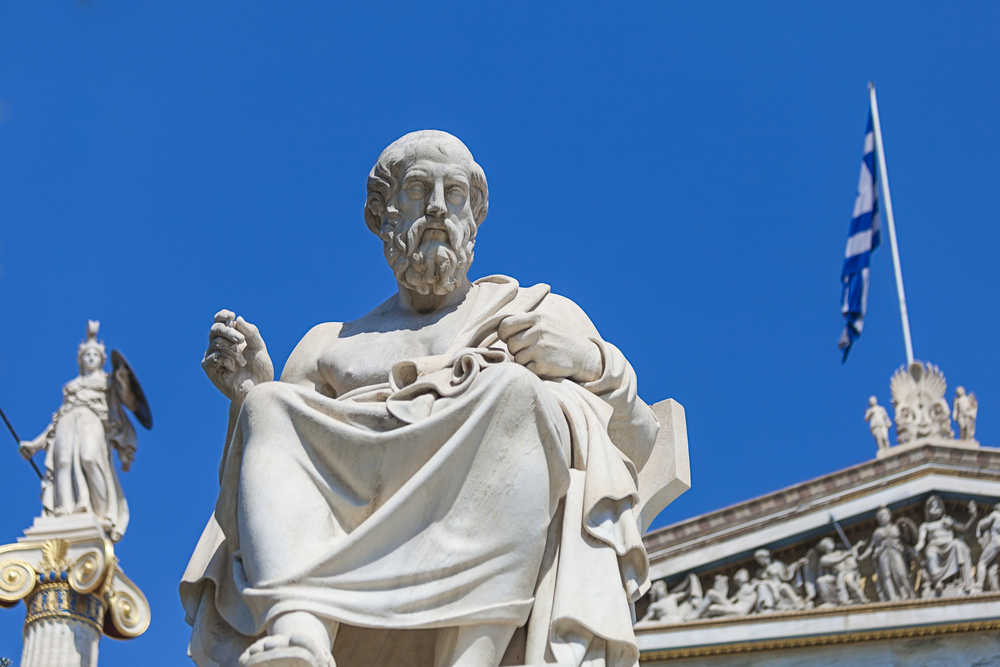© Anastasios71/Shutterstock
Last March 8, the Greek parliament approved a law that makes the creation of private universities possible: a provision that divides the country, bringing the right to education and democracy back to the center of the debate
Just hours before the passing of the law on private non-profit universities, thousands of people from all over the country had gathered in Syntagma Square in Athens, in front of the Parliament, to protest against the controversial bill with the motto “ free education for all”.
Students from different cities, teachers’ associations and trade unions participated in a large demonstration that paralyzed the capital of Greece, the culmination of 11 weeks of ongoing protests not only in Athens, but also in other “university cities”, such as Thessaloniki and Larissa.
Despite strong opposition, the ruling New Democracy party, with its 158 deputies, voted as a bloc in favor of the bill, supported by an independent deputy, H. Katsivardas, who brought the total votes in favor to 159 [il parlamento greco è composto da 300 deputati].
The main left-wing opposition party, SYRIZA, voted against. A similar position was adopted by the centre-left social democratic party PASOK, which did not oppose the bill in principle, but cited Article 16 of the Greek Constitution which bans private universities.
Public and private education in Greece: a history of unmet expectations
Greece is the only European country that bans private universities. The equivalent, although lower in terms of recognition and validation, is the so-called “private college”, which offers post-secondary courses in collaboration with recognized European universities and leads to a bachelor’s degree in three years (instead of the four expected in public universities ).
Although many colleges have made considerable efforts to improve their educational services, by recruiting experienced academic staff or by providing high-quality facilities and opportunities, they have failed to dispel their reputation as expensive institutions aimed at affluent or low-performing students, who have failed to pass the national exams to enter university.
Just like the recognition of university degrees in 2020, the newly approved law has attracted strong controversy for the following reasons: increasing competition in an already small and saturated job market, degradation of public university degrees, social injustice caused by the domination of a socio-economic elite who can “buy and sell” degrees, marginalization of disadvantaged students, and the gradual decline of peripheral state universities, many of which are already understaffed and underfunded.
Higher education in Greece has been in serious difficulty for years now, due to numerous and complex factors, including the progressive decrease in state funding (especially since the financial crisis), the frequent occupations of university spaces with consequent losses of lessons and of entrenched exam appeals, nepotism, corruption and favoritism, strongly intertwined with the university’s internal interests and politics.
There are fears that foreign private university investment will turn into a “franchise” that will further worsen the situation and create a two-speed education system defined by wealth, power and ideology.
New Democracy responds to these concerns by promising a meritocratic system that guarantees excellent services in synergy, and not in competition, with state universities. The government also cites the benefits of socio-economic growth and innovation that can arise from new investments in the country and from preventing or even reversing the massive brain drain that has been plaguing Greece for years.
Article 16 of the Greek Constitution
Those who oppose the law, calling it “unconstitutional”, cite Article 16 on “education, art and science”, which enshrines education as a public good and “the main mission of the State”, guaranteeing “all Greek citizens the right to ‘free education’ at all levels in state universities. The eighth paragraph explicitly states that “the creation of higher education institutions by private entities is prohibited”.
Part of the Greek educational community has protested in recent months, blocking central streets on a weekly basis or debating in the media. In the past, however, some scholars had expressed different opinions. In a 2002 article, George Psacharopoulos warned of the “social cost” of restricting an “insatiable demand for education,” thereby encouraging the exodus of students abroad.
In 2018, a group of Greek academics signed an open letter calling on the then left-wing government to review Article 16, citing its alleged inconsistency with the current “educational, social and cultural needs” of the Greek people and making it “an issue of democracy”.
For some of the population, the law’s passage is a victory that may lead to much-needed education reform, but opponents pledge to continue their efforts to challenge the law.
The Greek government should do its best to ensure that the implementation of the new law is fully in line with existing European Union regulations and that measures are taken, in the form of scholarships and other support programmes, to ensure a merit-based access to students, especially those who have financial difficulties.
Have you thought about a subscription to OBC Transeuropa? You will support our work and receive preview articles and more content. Subscribe to OBCT!
Comments, where possible, are screened by our staff before being made public. The time required for this operation can vary. Go to our policy
